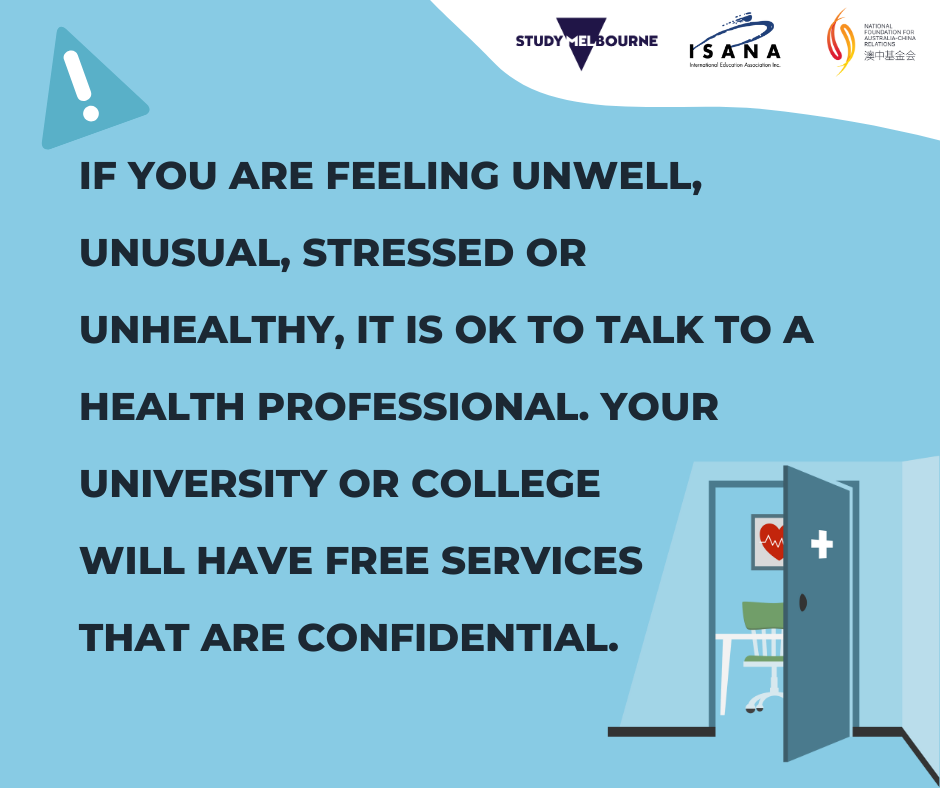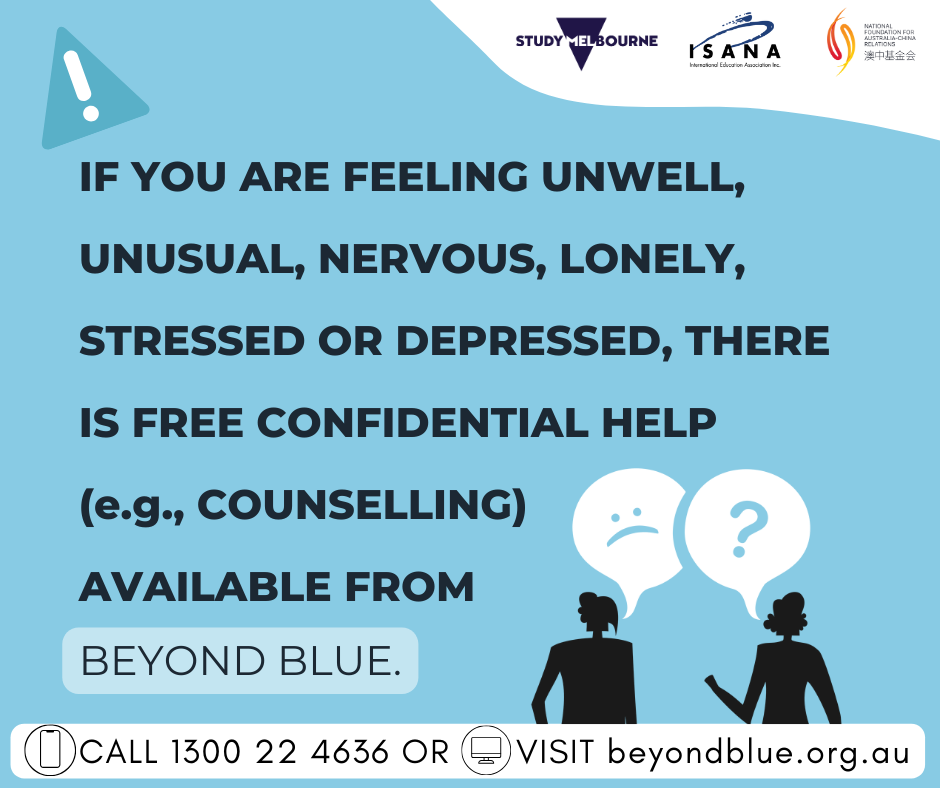Starting life as an international student brings with it some exciting challenges. Navigating a different culture, your studies and new relationships can be a lot to take on, and you might find yourself feeling anxious or stressed.
Don’t worry – this is normal! We all feel a bit stressed sometimes, but it’s important to know where to seek help when it becomes overwhelming. This is where visiting websites like Contact Points can be a great first step in understanding who to speak to in emergencies.
Read on for our guide to managing stress and where to find support as an international student.
Recognising stress as a student
Stress is a natural part of international student life – moving to a new country is a big deal! Feeling a bit overwhelmed before exams or deadlines is normal, but when stress starts interfering with your daily life, it’s time to take action.
Persistent feelings of anxiety, irritability, difficulty concentrating, changes in appetite or sleep patterns, and physical symptoms like headaches or stomach aches may indicate that your stress levels have become hard to manage on your own.
Stress management tips
Taking care of your mental health doesn’t have to be difficult! Here are some simple ways to manage your stress daily.
Practice mindfulness
Feeling like you can’t slow down? Take a few minutes each day to engage in mindfulness activities like meditation, deep breathing exercises, or yoga. These practices can help calm your mind and reduce anxiety.
Stay active
Exercising isn’t just good for fitness – regular physical activity can be a powerful stress reliever! Whether it’s going for a walk, hitting the gym or dancing to your favourite tunes, find an activity that you enjoy and make it a regular part of your routine.
Connect with others
Starting a new life abroad isn’t always easy, but making new friends can help. Building a support network means that you don’t have to deal with any problems on your own. Reach out to friends, family, or trusted teachers for support, and don’t hesitate to seek professional help if you’re struggling.
Where can I go for support as an international student?
You’re not alone – there are plenty of services available in Australia to help you cope with stress and other mental health concerns.
Contact Points
Not sure who to speak to in an emergency? Contact Points is here to support international students in Australia. Contact Points breaks down exactly where to go when you have issues – from before you arrive in Australia, to exam periods, to when you’re on holiday.
“Contact Points provides guidance based on evidence-based research that is clear and concise on how to convey critical information to international students and new migrants… This is an invaluable guide for all who work with people who are new to Australia,” shares Mary Ann Seow, International Education Association Inc. (ISANA) Life Member.
If you think your friends would benefit from this information, share it! The information tiles are perfect for social media, and you’ll be spreading important messages.
Your education provider’s counselling services
Most education providers in Australia offer counselling services, where you can speak confidentially to a professional psychologist or counsellor. Check out your institution’s website to see what services are available.
Head to the Contact Points website for more information on emergency contacts for international students
International student support offices
Your education provider may have a dedicated office or staff members who specialise in supporting international students. They can assist you with issues related to visas, accommodation, cultural adjustment, and mental health.
Community organisations
Look for community organisations or support groups that cater to international students or migrants, such as organisations hosting English language classes, cultural events or religious celebrations. You can look for these organisations and groups promoted through your local library or council. These groups can provide you with a sense of belonging and connect you with others who understand the challenges of living abroad.
Online resources
There are numerous online resources available to international students, offering support for mental health issues. Websites like healthdirect, headspace and Embrace Multicultural Mental Health can provide information and advice.
Helplines
Organisations like Beyond Blue and Lifeline offer free, confidential helplines staffed with trained volunteers ready to assist you. These resources can be useful in times of need, providing a listening ear and guidance to help you navigate through tough times.
Remember, stress is a normal part of life, and there’s no shame in asking for help. You are not alone, and there are people and resources available to support you.
By incorporating these stress management techniques and knowing where to turn for support, you can build resilience and enjoy your time studying abroad. Take care of yourself, prioritise your mental health, and remember that help is always available when you need it!
Co-designed by emergency services, health services and international students, Contact Points is here to share where to find help in emergencies and critical issues during your student journey.









